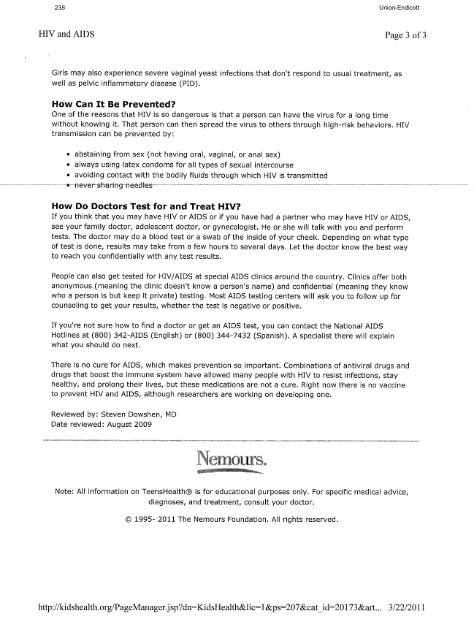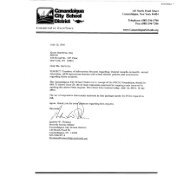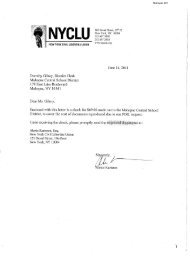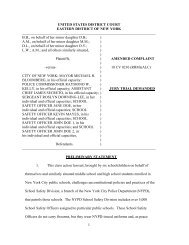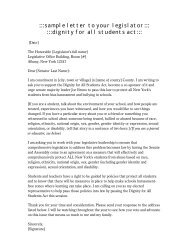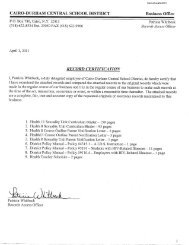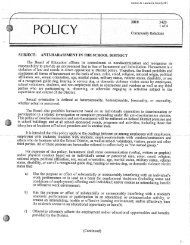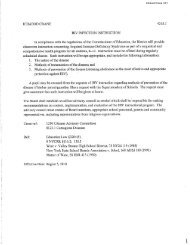t - New York Civil Liberties Union
t - New York Civil Liberties Union
t - New York Civil Liberties Union
Create successful ePaper yourself
Turn your PDF publications into a flip-book with our unique Google optimized e-Paper software.
238<br />
<strong>Union</strong>-Endicott<br />
HIVandAIDS<br />
Page 3 of3<br />
Girls may also experience severe vaginal yeast infections that don't respond to usual treatment,<br />
well as pelvic inflammatory<br />
disease (PID).<br />
as<br />
How Can It Be Prevented?<br />
One of the reasons that HIV is so dangerous is that a person can have the virus for a long time<br />
without knowing it. That person can then spread the virus to others through high-risk behaviors. HIV<br />
transmission can be prevented by:<br />
• abstaining from sex (not having oral, vaginal, or anal sex)<br />
• always using latex condoms for all types of sexual intercourse<br />
• avoiding contact with the bodily fluids through which HIV is transmitted<br />
~~~~~~-.-never-shêlring-needles<br />
How Do Doctors Test for and Treat HIV?<br />
If you think that you may have HIVor AIDS or if you have had a partner who may have HIVor AIDS,<br />
see your family doctor, adolescent doctor, or gynecologist.<br />
He or she will talk with you and perform<br />
tests. The doctor may do a blood test or a swab of the inside of your cheek. Depending on what type<br />
of test is done, results may take from a few hours to several days. Let the doctor know the best way<br />
to reach you confidentially with any test results.<br />
People can also get tested for HIV/AIDS at special AIDS clinics around the country. Clinics offer both<br />
anonymous (meaning the clinic doesn't know a person's name) and confidential (meaning they know<br />
who a person is but keep it private) testing. Most AIDS testing centers will ask you to follow up for<br />
counseling to get your results, whether the test is negative or positive.<br />
If you're not sure how to find a doctor or get an AIDS test, you can contact the National AIDS<br />
Hotlines at (800) 342-AIDS (English) or (800) 344-7432 (Spanish). A specialist there will explain<br />
what you should do next.<br />
There is no cure for AIDS, which makes prevention so important. Combinations of antiviral drugs and<br />
drugs that boost the immune system have allowed many people with HIV to resist infections, stay<br />
healthy, and prolong their lives, but these medications are not a cure. Right now there is no vaccine<br />
to prevent HIVand AIDS, although researchers are working on developing one.<br />
Reviewed by: Steven Dowshen, MD<br />
Date reviewed: August 2009<br />
dd IdId.IdIldll_ ""'".<br />
Note: All information on TeensHealth® is for educational purposes only. For specific medical advice,<br />
diagnoses, and treatment, consult your doctor.<br />
© 1995- 2011 The Nemours Foundation. All rights reserved.<br />
http://kidshealth.org/PageManager.jsp?dn=KidsHealth&lic=l&ps=207&cat_id=20173&art... 3/22/2011


